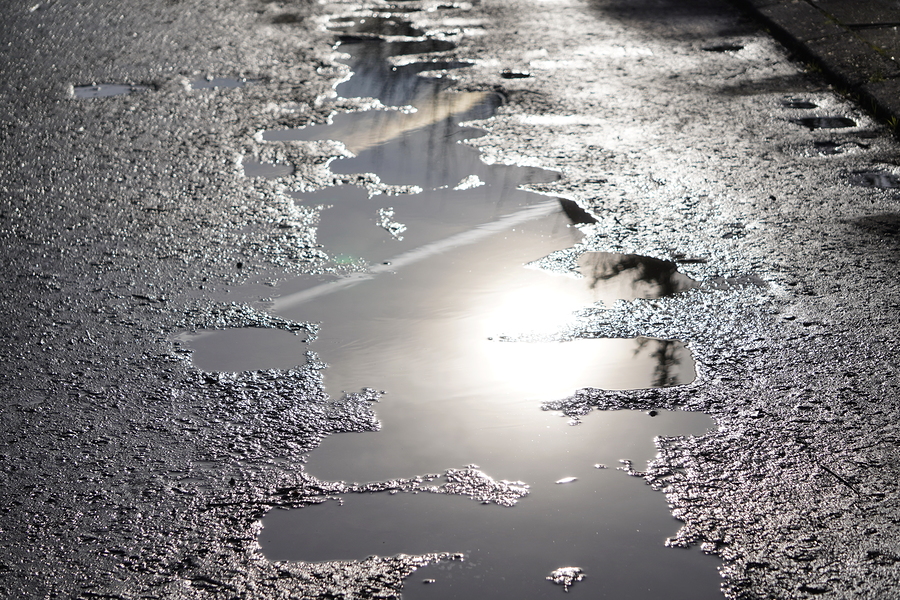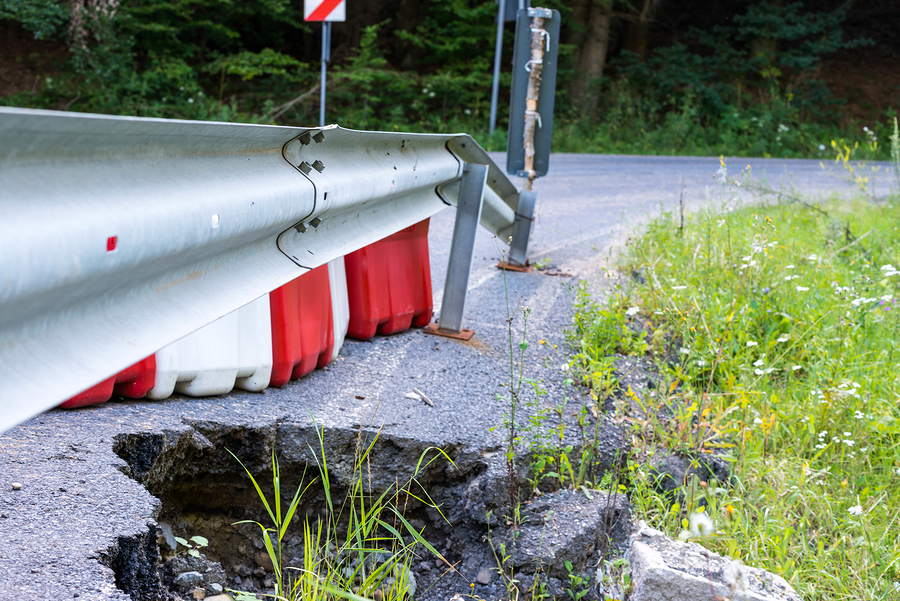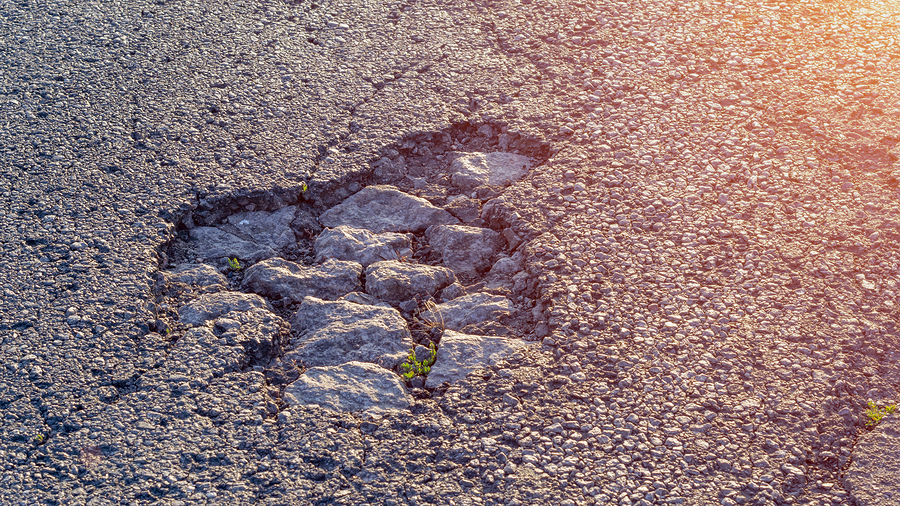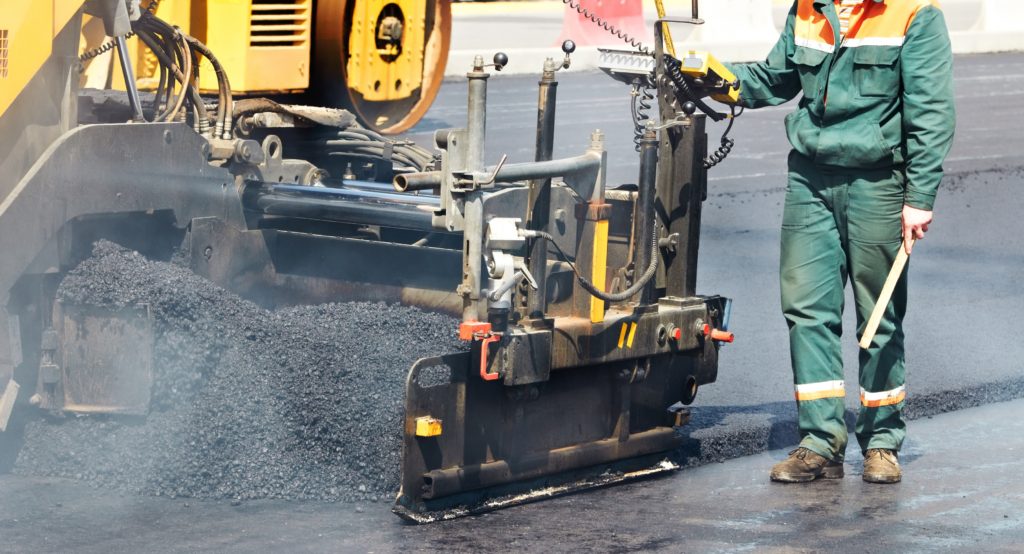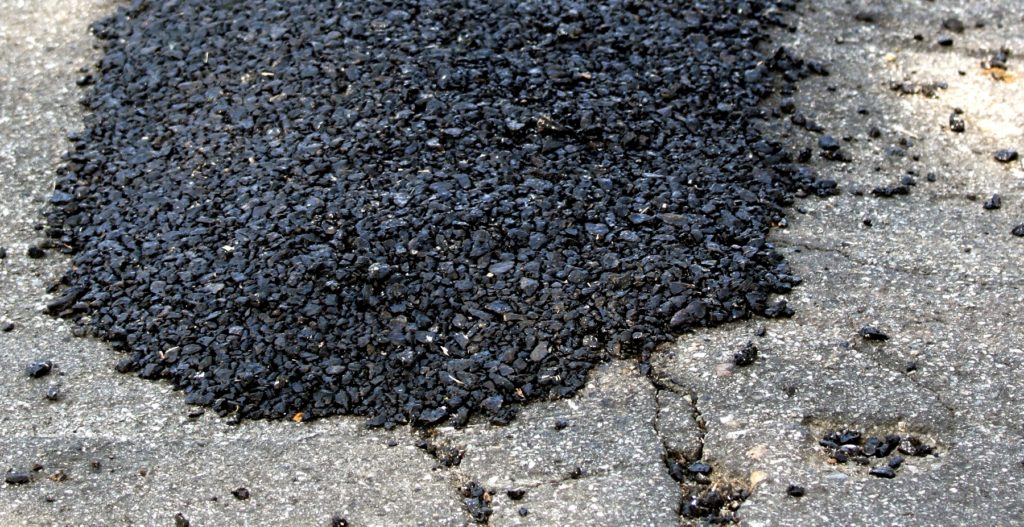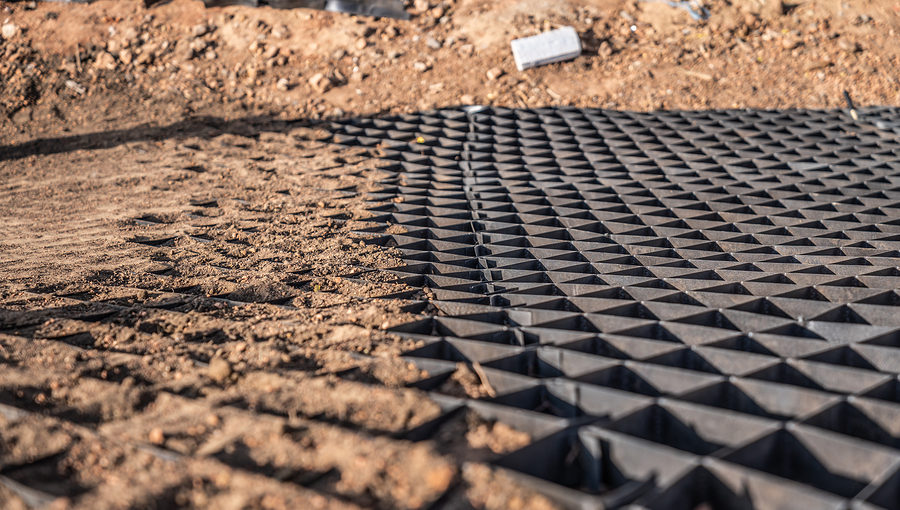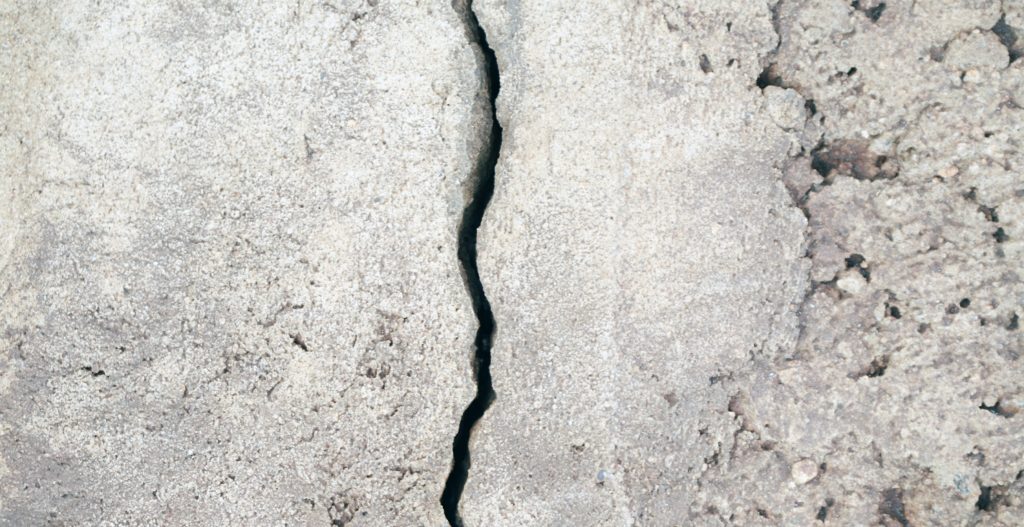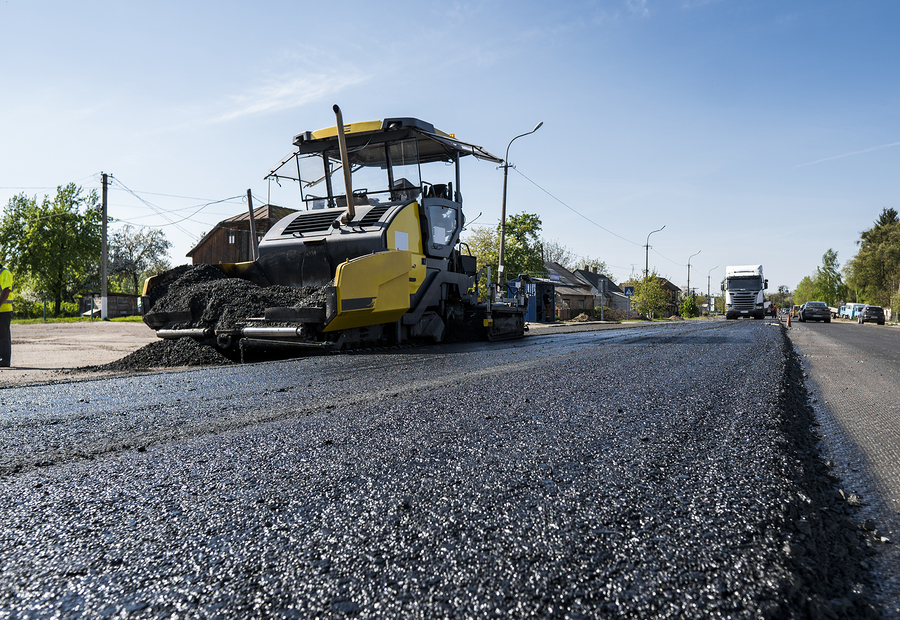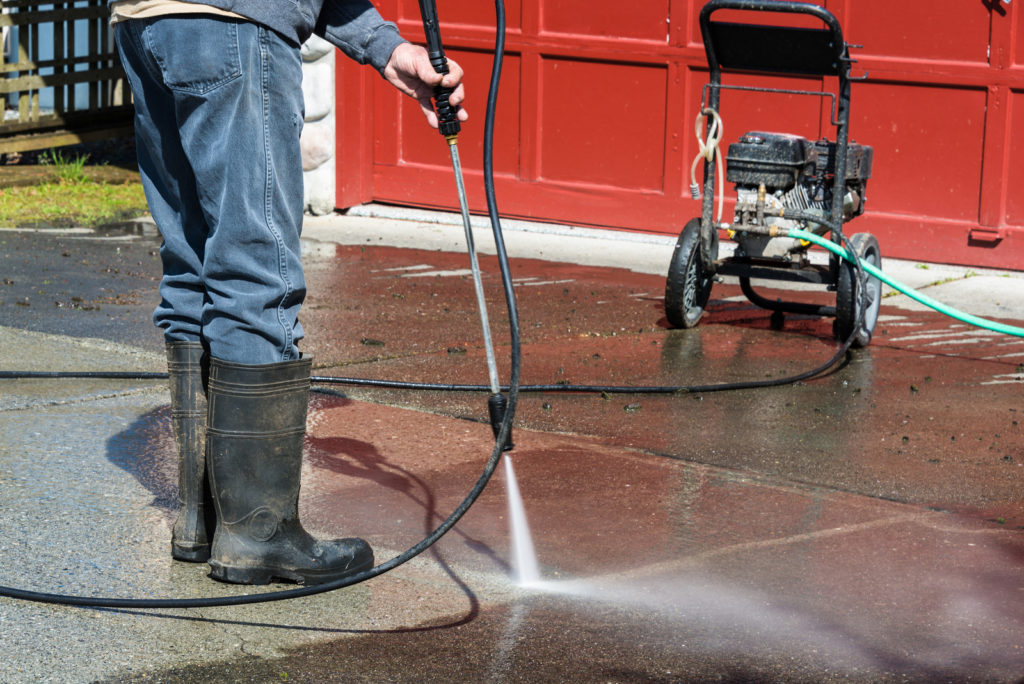There is no argument about it, potholes are menacing. They are especially undesirable to have on or near your own property. But whether you are a commercial or residential property owner, it is not wise to attempt pothole repair on your own. Continue reading to learn more about pothole management, including how they form and why you should always hire a professional to have them repaired.
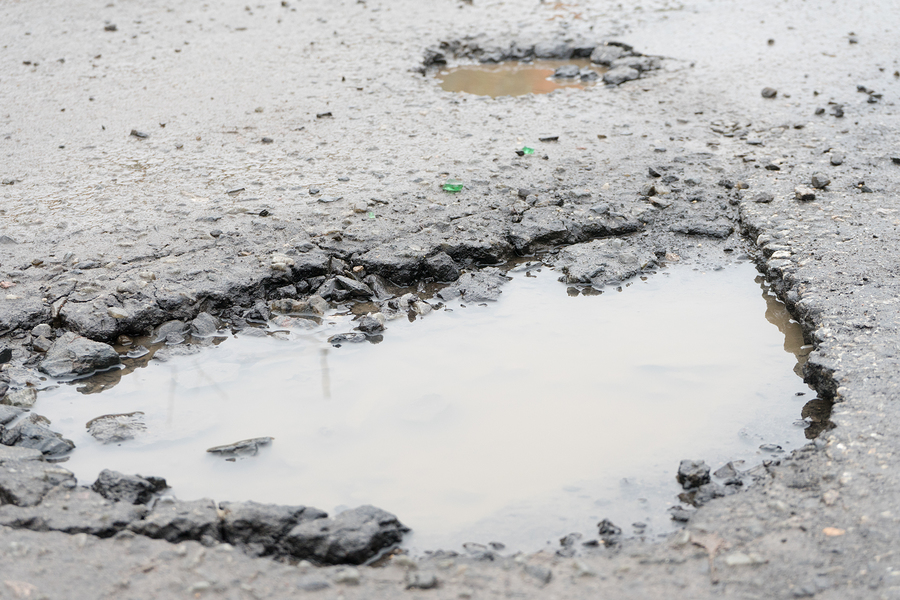
The Basics of Pothole Formation
Pothole formation begins when water seeps into existing cracks and depressions in pavement that have been caused by a combination of inclement, weather, traffic, and natural wear and tear. Water then reacts with the cold temperatures by freezing and subsequently expanding. Then, when temperatures become milder, the water thaws, causing the existing cracks to contract and ultimately worsen.
This worsening is due to water draining and evaporating into the surface, causing a gap to form between the ground and the pavement. The more this cycle occurs, the larger the surface blemishes get, and eventually form what we frustratingly know as potholes. Both asphalt and concrete surfaces are vulnerable to these effects, including sidewalks, parking lots, roads, streets, pool decks, and more.
Conventional Pothole Repair Methods
There are various types of pothole repair methods used in the pavement construction industry, both semi-permanent and temporary versions. One of the most popular techniques used to repair potholes is the “throw and roll” method. This is a temporary fix that basically involves patching the hole with the right material, and then letting traffic drive over it to finish the job. This is the quickest and easiest technique for repairing a pothole on a short-term basis.
In fact, it can cause even more water accumulation and stability issues if used as a permanent solution. This is because the pothole is only being filled-in from the top, which means the rocks and pebbles still inside creating gaps beneath the surface where water can occupy. To make the “throw and roll” repair method semi-permanent, these chunks of rock and pavement need to be removed before the hole is filled with patching material.
DIY Pothole Repair
As you can see, there are many specialized materials, machines, and technologies used to ensure pothole repair is finished up to code, and lasts a long time. If you attempt to repair a pothole yourself, you are not promised long-lasting results. Furthermore, you would have to spend more money acquiring the necessary materials and supplies for the job. It is more cost-effective to hire a professional pavement repair company to fill in potholes. They will do the job right the first time, so that you do not have to address it again in the future.
As for business owners, hiring professionals is a must. Fortunately, commercial asphalt repair is more affordable than most people believe, and you can find reputable commercial pavement repair services in a matter of minutes. Just be sure to choose a company that is licensed and insured, with years of experience and training. They can offer competitive rates and free estimates, saving you hundreds of dollars along the way.
Commercial Paving Contractors in Indianapolis, Indiana
Call ACI Asphalt and Concrete at 317-549-1833 for commercial pothole repair and paving services in Indianapolis, Indiana. Our licensed and qualified contractors provide several asphalt and concrete paving services, including pavement repair, sealcoating, road work, commercial paving, industrial paving, winter cold patching, and more. We are the industry veterans to trust for skilled craftsmanship and competitive prices! Request a free estimate, today.


